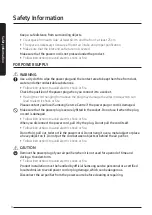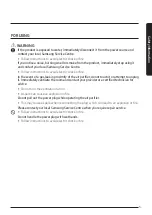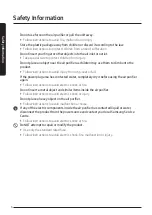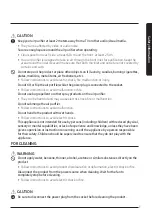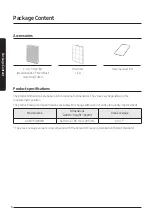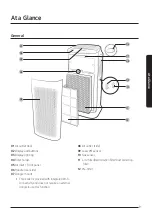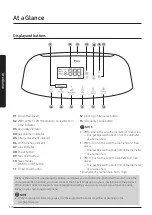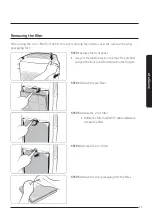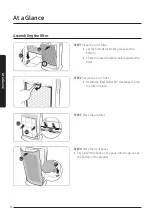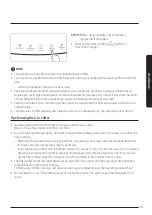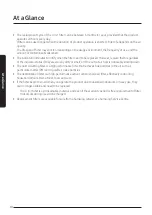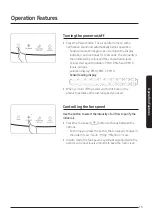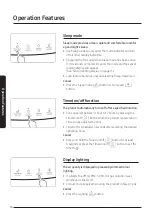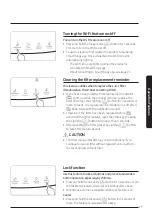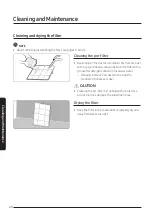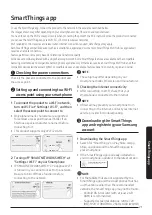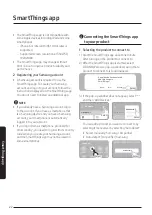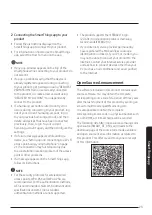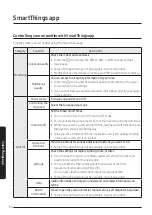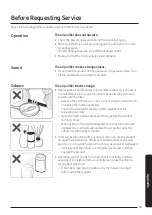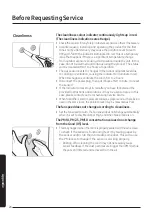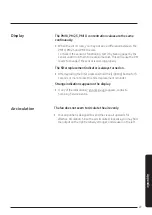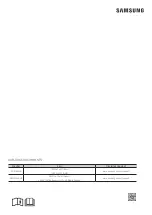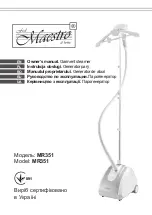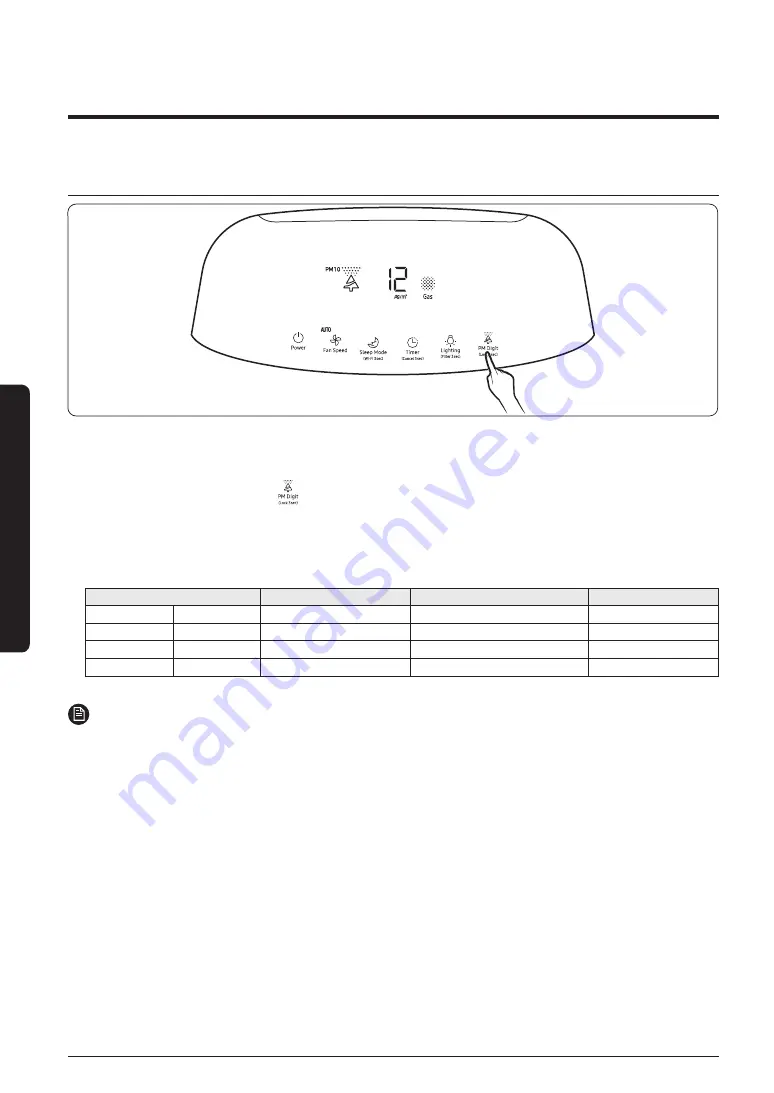
Oper
ation F
eatur
es
18
Checking the air quality
You can review the current air quality from the display panel with the colour (reflecting the PM10 / PM2.5 /
PM1.0 / gas pollution) and the concentration level indicators.
•
By default, the colour and PM10 / PM2.5 / PM1.0 level indicators reflect the PM10 concentration.
•
Each time you press the Air quality [ ]
button, the current state is displayed in the order of PM10 → PM2.5 → PM1.0.
The PM2.5 and PM1.0 levels are displayed for 10 seconds, before automatically changes to the PM10 level.
– The air quality will be ‘Very Poor’ when the PM2.5 / PM1.0 levels are worse than the PM10 level.
If the concentration levels are same for all PM groups, the indicator will reflect the PM10 level.
•
Air quality levels
Pollution level
PM10 level (
㎍
/m³)
PM2.5 / PM1.0 level (
㎍
/m³) Gas pollution level
Very poor
Red
151 and over
76 and over
4
Poor
Yellow
81 - 150
36 - 75
3
Moderate
Green
31 - 80
16 - 35
2
Good
Blue
30 and below
15 and below
1
•
PM10, PM2.5 and PM1.0 measurement will be displayed in numbers 05 – 999.
NOTE
•
The dust concentration may vary depending on the environmental conditions (for example, when the
product is near a construction site, road, or fabric sofa, or when a vacuum cleaner is used or bedding and
clothes are arranged near the product, etc.).
•
The following conditions may cause temporarily high readings of PM level:
– When the product is used near fur rugs or used in vets, clothes stores, or other places prone to high
humidity, smoke or infestation
– When humidifiers, electric pressure cookers, sprayers and such are being used in the same room
– When the product is used where there is inflow of outside air with dust or other types of air pollution (e.g.
proximity to the building’s HVAC or ventilation systems, or loose window frames)
•
The gas pollution reading can be affected by odorous household items such as air fresheners, deodorants
and detergents.
•
If you are using more than one air purifier in the same room, the dust concentration reading on each unit
may not be same as they affect air circulation. The dust concentration reading may vary depending on
the sensor or product being used.
•
If there is no change in the intensity of gas (odour), it may not be reflected in the gas pollution reading
even though you can clearly smell it.
•
PM levels on the display may differ from the official forecasts.
•
Nearby electromagnetic waves or electrical noises may cause temporarily high readings of PM level.
Operation Features

